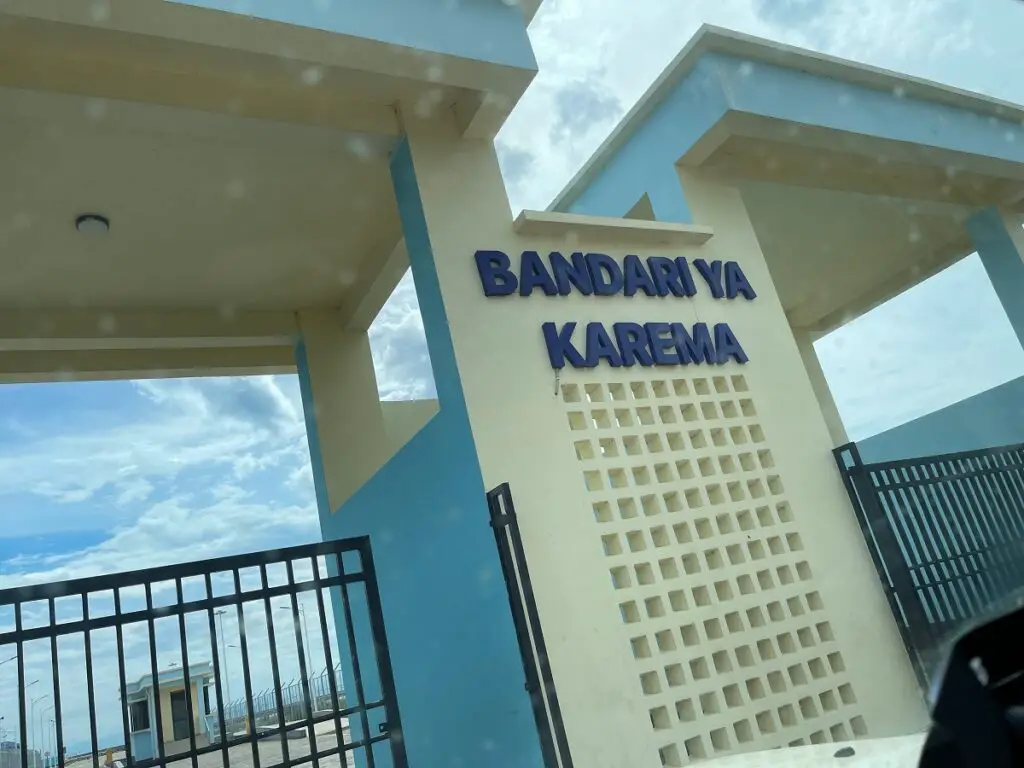- Kalemie, on the DRC side of Lake Tanganyika, is a vital connection point, linking the DRC with regional ports such as Bujumbura, Burundi, Mpulungu, Zambia, and Kigoma, Tanzania.
- Tanzania’s exports to Congo were worth about $280.54M in 2022, per the United Nations’ Comtrade Database of International Trade.
- Lake Tanganyika, an important geographical feature that serves as a natural boundary between the two countries, plays a crucial role in this developing relationship.
The trade between the Democratic Republic of the Congo (DRC) and Tanzania is growing rapidly. Both countries have great potential for economic growth and development. Lake Tanganyika, an important geographical feature that serves as a natural boundary between the two countries, plays a crucial role in this developing relationship.
Trade Corridors and Infrastructure
One particularly important corridor for trade connecting these countries is the Central Corridor in Eastern Africa. It links the DRC, Rwanda, Burundi, Uganda, and Tanzania with other economic corridors and seaports across the continent.
This trade route stands to benefit from the Central Corridor Standard Gauge Railway (SGR) Project’s plans to extend service from Isaka, Tanzania, to Kigali, Rwanda, and then Kindu, DRC. This project intends to improve intra-regional trade, cut transport costs, and boost the regional economy.
The Tunduma border crossing is an important commercial route between Tanzania and Zambia. This crossing is an important commercial gateway, especially for the transportation of goods destined for the DRC. The Dar es Salaam Corridor is looking to enhance its trade volume, and the development of a One-Stop Border Post (OSBP) at Tunduma is one step towards that goal by streamlining trade processes and decreasing clearance times.
Commerce on Lake Tanganyika
Trade between the DRC and Tanzania revolves mostly around Lake Tanganyika. Tanzania’s entire trade volume with Lake Tanganyika’s neighbouring nations in 2019, led by the Democratic Republic of the Congo, was 740 billion Tanzanian shillings. When compared to the volume of trade at other major border crossings in the East African Community (EAC), this number is substantial.
Kalemie, on the DRC side of Lake Tanganyika, is a vital connection point, linking the DRC with regional ports such as Bujumbura, Burundi, Mpulungu, Zambia, and Kigoma, Tanzania. The port of Kalemie handles an estimated 60,000 tonnes of import products annually, making this connection crucial for feeding the eastern portions of the DRC.
Tanzania’s exports to Congo were worth about $280.54 million in 2022, per the United Nations’ Comtrade Database of International Trade. While no evidence of Congolese exports to Tanzania was discovered, a sizable number of mineral items likely passed through Lumumbashi on their way to Tanzania.
Kigoma, a large port on Tanzania’s Lake Tanganyika, features amenities like weighbridges, oil tanks, workshops, and a passenger lounge to facilitate commerce on the lake. It is connected to road and railway networks in Tanzania and neighbouring countries, boosting commercial efficiency. In order to keep commerce flowing between the areas on either side of Lake Tanganyika, regular inland-waterway services must be provided.
The rural village of Karemi, a small coastal commune in Tanzania near Lake Tanganyika is a stone tosses away from the Democratic Republic of Congo. Few, however, are aware of the opportunities that exist in this coastal hamlet. The staff here has no idea that they are sitting on the groundwork for what could become a key crossroads for commerce between the two countries. From Karemi, a trading port on the DRC side, corn and other agricultural crops are transported daily in dhows or sailing vessels to Kalemi.
Whether or not the far more southern Port of Karemi can compete with the Port of Kigoma and supply cargo and other items to the DRC remains to be seen. If this is the case, it will avoid the 45-day delay experienced by transportation and cargo importers due to the present trade route through the Tunduma region.
Read also: Simplify, unify, thrive: How single window system enhances trade
Difficulties and Prospects
There are still problems to solve, despite these advances. Improvements to transport and logistics infrastructure are particularly important for facilitating smooth business transactions between the DRC and Tanzania. An climate conducive to trade and investment must also feature political stability and efficient government.
Trade between the DRC and Tanzania could be expedited by facilitating its passage through the ports of Kigoma and Karemi; however, precise data on existing transit times and the predicted impact of the upgrades is required to determine the exact number of days saved. Customs and border control procedures, the condition of transportation networks (roads, rails, and waterways), and the effectiveness of port operations are all relevant factors. Logistics could be streamlined and delays reduced with improved port facilities and better connection.
Potential exists to broaden commerce beyond the current focus on raw material exports. Exports can benefit from developing value chains and investing in industries like manufacturing and services by receiving a higher price. Such an extension is encouraged by the African Continental Free Trade Act (AfCFTA) and the Democratic Republic of the Congo’s accession to the East African Community (EAC), both of which provide frameworks for free trade between African countries.
Increased commerce between Tanzania and the DRC, especially across Lake Tanganyika, portends a prosperous new era for Africa as a whole. These countries can considerably aid in the transformation of the African economy by tackling existing issues and capitalising on their complementing capabilities. Future central roles for Tanzania and the DRC in Africa’s economic landscape are indicated by current infrastructure projects, strategic use of Lake Tanganyika, and commitment to regional integration under the AfCFTA and EAC.

